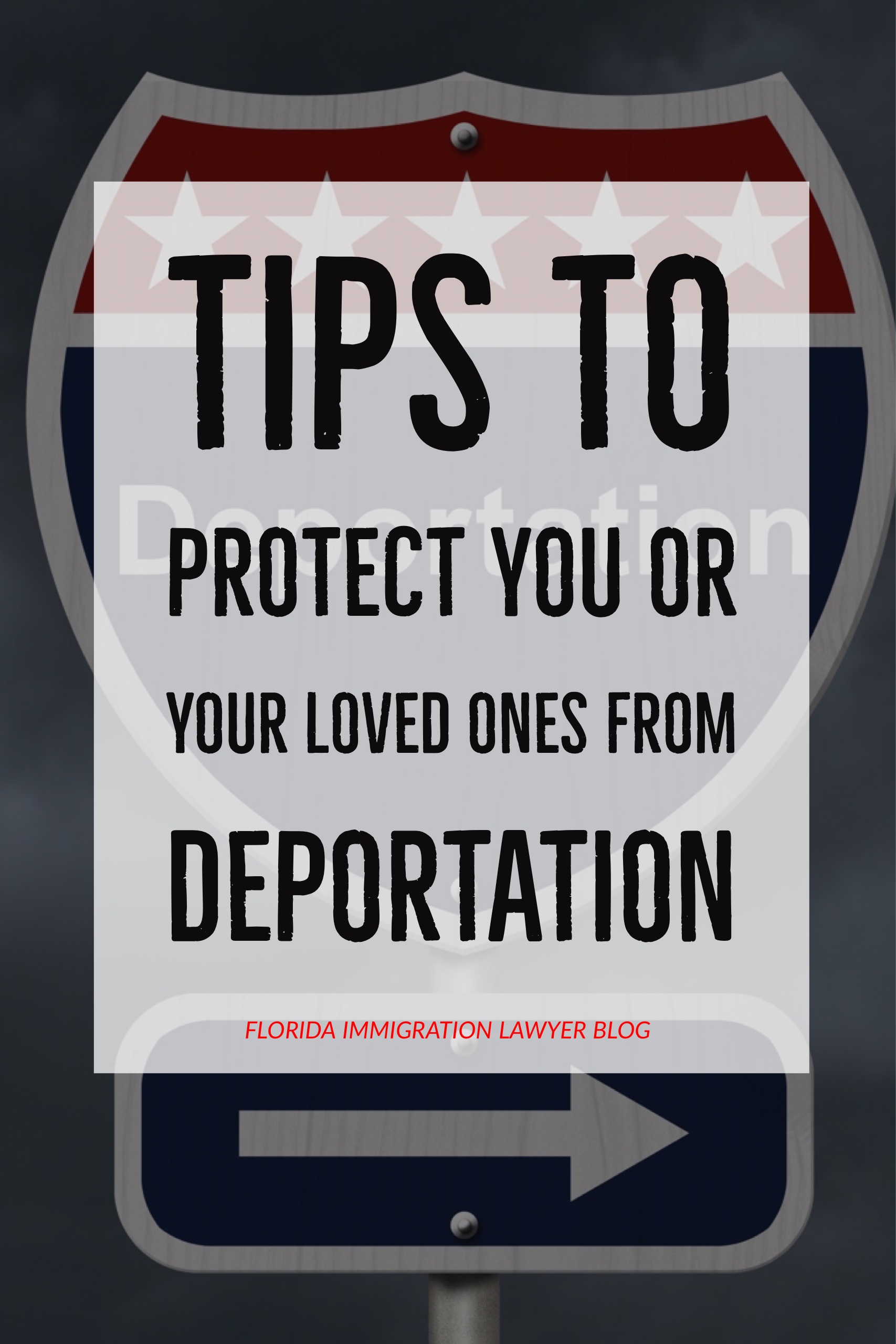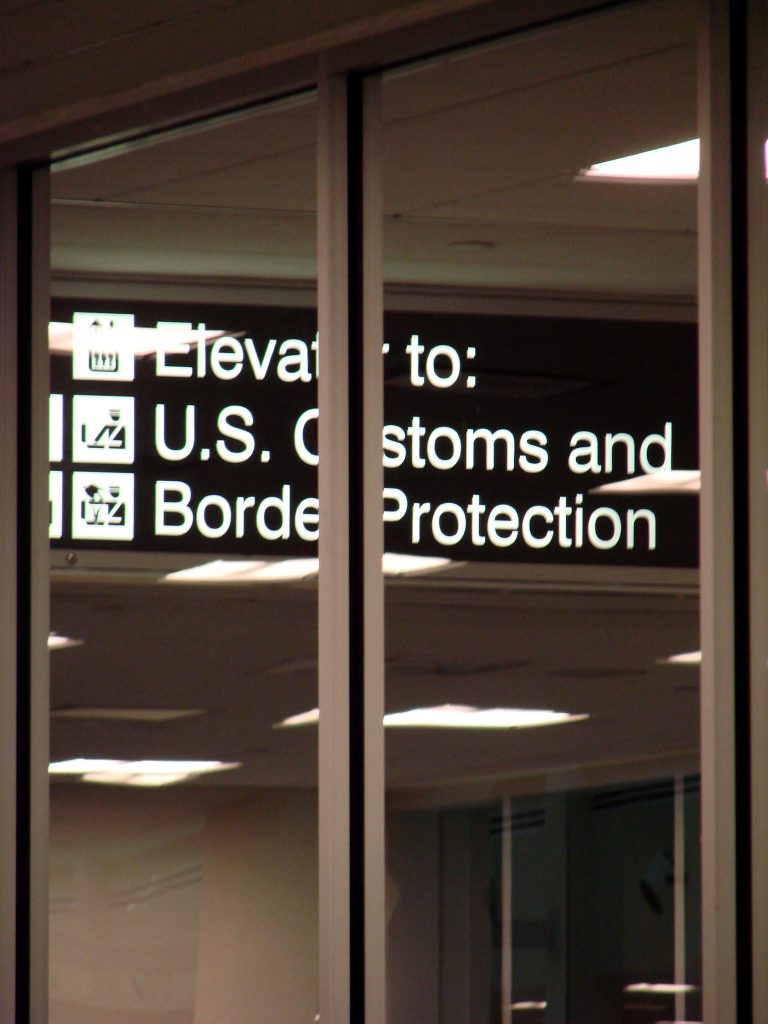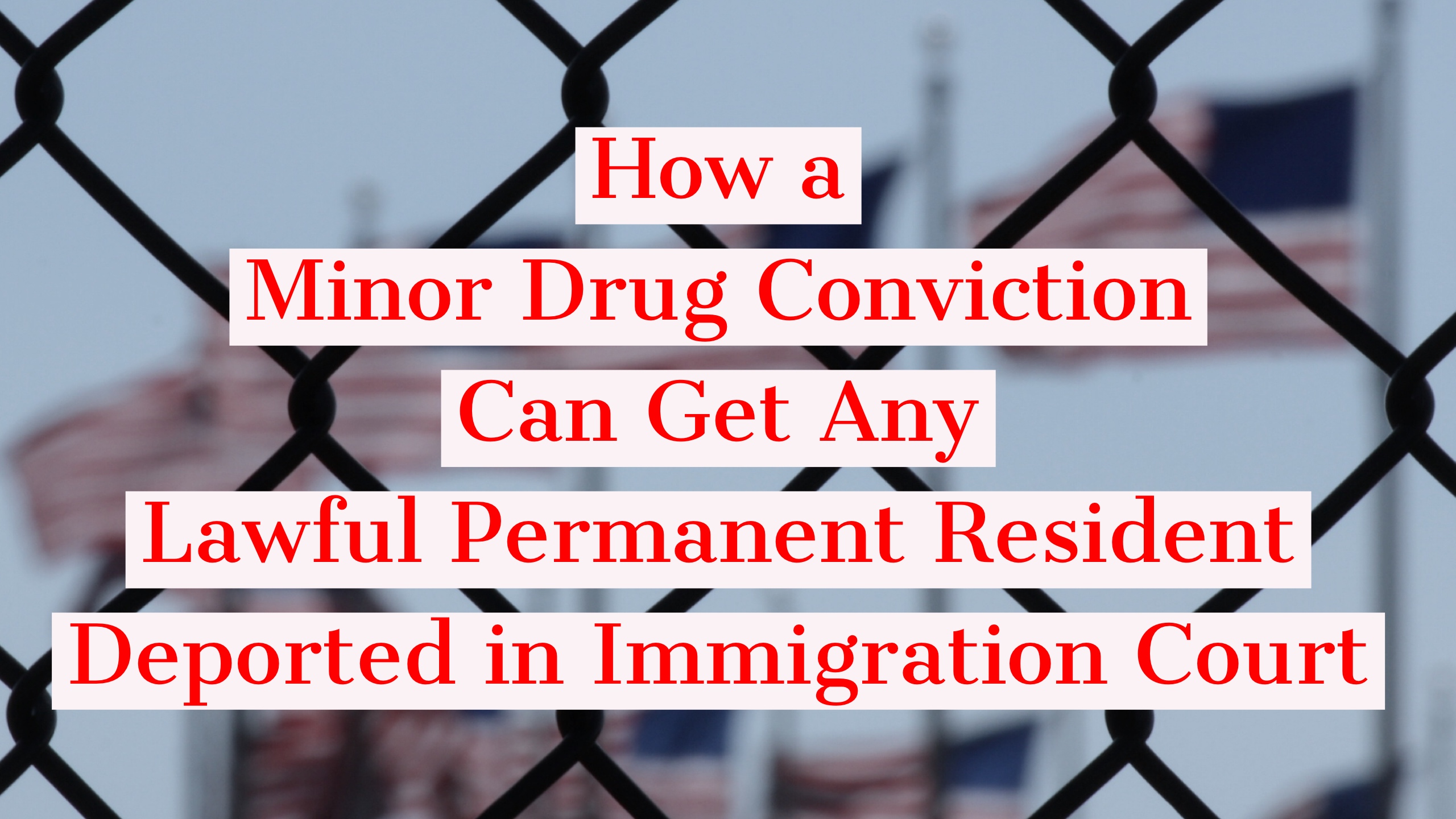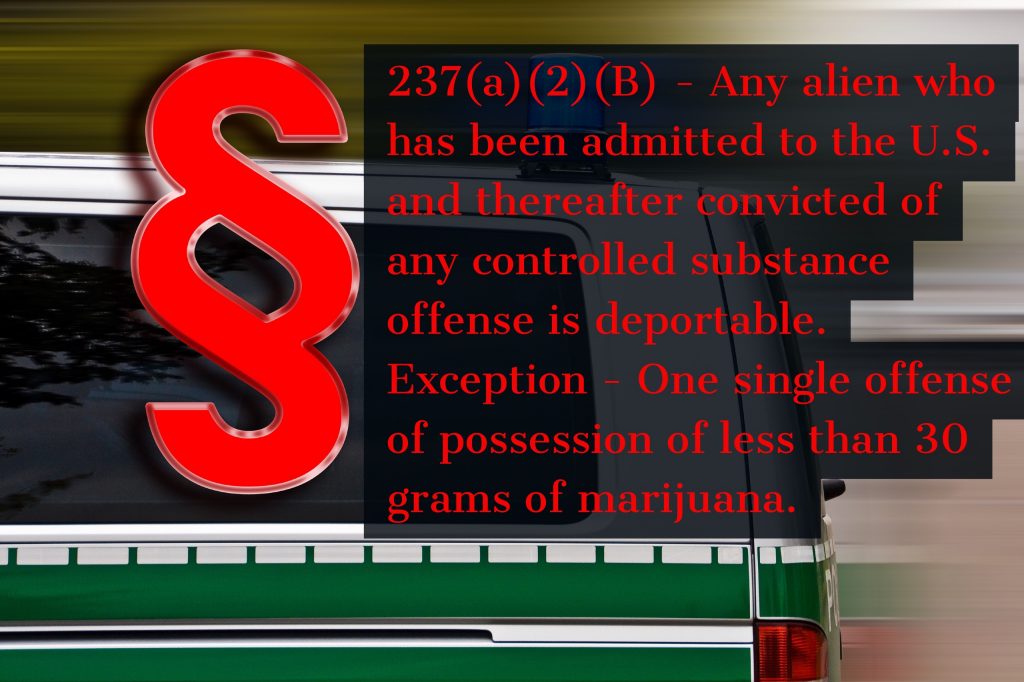
The government is deporting people at a record rate. The current administration has said that it is focused on “bad hombres,” but people who have been here for many years with no criminal convictions are being targeted as well as those with criminal charges. There are things that can be done to protect yourself or those you love from deportation. Here is a list of some of the more common ways:
- Become A U.S. Citizen –
 So many lawful permanent residents (greencard holders) put off becoming a United States citizen for a variety of reasons. Whether they don’t want to pay the fee or go through the administrative process or study for the test or renounce their loyalty to their country of birth, they put off becoming citizens. This is a mistake. Once you become a United States citizen, you can disregard the Immigration and Nationality Act. This means that you can come to and go from the United States as any other U.S. citizen does. This means that if you are ever convicted of a minor crime, you would not be deportable. This means that you would not have to deal with the hassle and uncertainty of being inspected by Customs and Border Protection agents in the same way as non-citizens, including random secondary inspections. If you wanted to reside outside the United States with the option of coming back, you could do this as a United States citizen. You may be able to apply for your non-citizen relative or help keep that relative from being deported, if you are a U.S. citizen. The naturalization process takes several months and often times it can be too late for people to apply when they need it. For example, if you are arrested for battery, minor drug possession, theft, criminal mischief, fraud, or any other criminal charge, it could prevent you from applying for citizenship for 5 years, and sometimes forever. Or even worse, it could be a basis for deportation, no matter how long you have lived in the United States and been a lawful permanent resident. The immigration laws are complicated. Do yourself a favor and become a U.S. citizen as quickly as possible.
So many lawful permanent residents (greencard holders) put off becoming a United States citizen for a variety of reasons. Whether they don’t want to pay the fee or go through the administrative process or study for the test or renounce their loyalty to their country of birth, they put off becoming citizens. This is a mistake. Once you become a United States citizen, you can disregard the Immigration and Nationality Act. This means that you can come to and go from the United States as any other U.S. citizen does. This means that if you are ever convicted of a minor crime, you would not be deportable. This means that you would not have to deal with the hassle and uncertainty of being inspected by Customs and Border Protection agents in the same way as non-citizens, including random secondary inspections. If you wanted to reside outside the United States with the option of coming back, you could do this as a United States citizen. You may be able to apply for your non-citizen relative or help keep that relative from being deported, if you are a U.S. citizen. The naturalization process takes several months and often times it can be too late for people to apply when they need it. For example, if you are arrested for battery, minor drug possession, theft, criminal mischief, fraud, or any other criminal charge, it could prevent you from applying for citizenship for 5 years, and sometimes forever. Or even worse, it could be a basis for deportation, no matter how long you have lived in the United States and been a lawful permanent resident. The immigration laws are complicated. Do yourself a favor and become a U.S. citizen as quickly as possible. - File a Petition –
 In some cases, you may be able to file a Petition on behalf of your non-citizen spouse or other family member, even if they are here without authorization. For example, a spouse of a person who came into the United States without authorization may be able to file a petition and that person may be able to file a provisional waiver to excuse their unlawful presence in the U.S. An approved petition alone could help if the person is placed in removal proceedings or taken into custody by ICE. The immigration laws are designed to be more forgiving of certain immigration violations if the person is an immediate relative of a U.S. citizen. Filing a petition may or may not be beneficial in your case. Consult with an immigration attorney to see whether it would help or hurt you or your loved one.
In some cases, you may be able to file a Petition on behalf of your non-citizen spouse or other family member, even if they are here without authorization. For example, a spouse of a person who came into the United States without authorization may be able to file a petition and that person may be able to file a provisional waiver to excuse their unlawful presence in the U.S. An approved petition alone could help if the person is placed in removal proceedings or taken into custody by ICE. The immigration laws are designed to be more forgiving of certain immigration violations if the person is an immediate relative of a U.S. citizen. Filing a petition may or may not be beneficial in your case. Consult with an immigration attorney to see whether it would help or hurt you or your loved one.
 Florida Immigration Lawyer Blog
Florida Immigration Lawyer Blog








 Many potential clients who call our office ask this question: Why do I need to pay for a consultation with your immigration attorney? There are two easy answers to that question. First you get what you pay for. And second, an attorney’s time and knowledge are what they have to offer to a client. If an immigration attorney is willing to do a comprehensive telephonic or in-person consultation on every immigration case for free, that may not be the attorney you want to handle your case.
Many potential clients who call our office ask this question: Why do I need to pay for a consultation with your immigration attorney? There are two easy answers to that question. First you get what you pay for. And second, an attorney’s time and knowledge are what they have to offer to a client. If an immigration attorney is willing to do a comprehensive telephonic or in-person consultation on every immigration case for free, that may not be the attorney you want to handle your case.



 There are very few forms of relief available which would allow an immigration judge to waive or cancel this basis of deportation. You are either eligible for these forms of relief or you are not. If you are not eligible, the immigration judge has no discretion to block your deportation, even if he or she wants to.
There are very few forms of relief available which would allow an immigration judge to waive or cancel this basis of deportation. You are either eligible for these forms of relief or you are not. If you are not eligible, the immigration judge has no discretion to block your deportation, even if he or she wants to.

